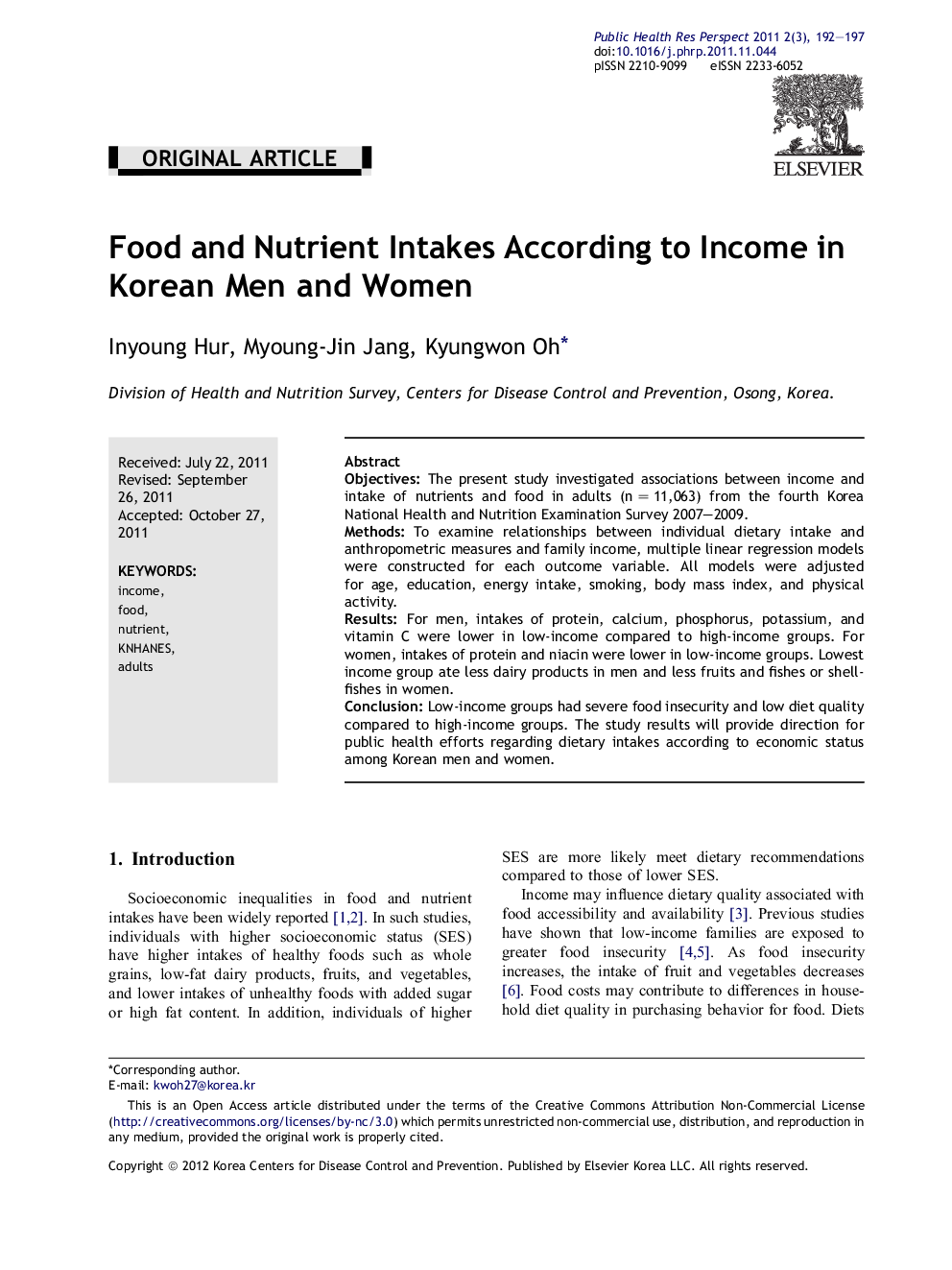| Article ID | Journal | Published Year | Pages | File Type |
|---|---|---|---|---|
| 4202182 | Osong Public Health and Research Perspectives | 2011 | 6 Pages |
ObjectivesThe present study investigated associations between income and intake of nutrients and food in adults (n = 11,063) from the fourth Korea National Health and Nutrition Examination Survey 2007–2009.MethodsTo examine relationships between individual dietary intake and anthropometric measures and family income, multiple linear regression models were constructed for each outcome variable. All models were adjusted for age, education, energy intake, smoking, body mass index, and physical activity.ResultsFor men, intakes of protein, calcium, phosphorus, potassium, and vitamin C were lower in low-income compared to high-income groups. For women, intakes of protein and niacin were lower in low-income groups. Lowest income group ate less dairy products in men and less fruits and fishes or shellfishes in women.ConclusionLow-income groups had severe food insecurity and low diet quality compared to high-income groups. The study results will provide direction for public health efforts regarding dietary intakes according to economic status among Korean men and women.
